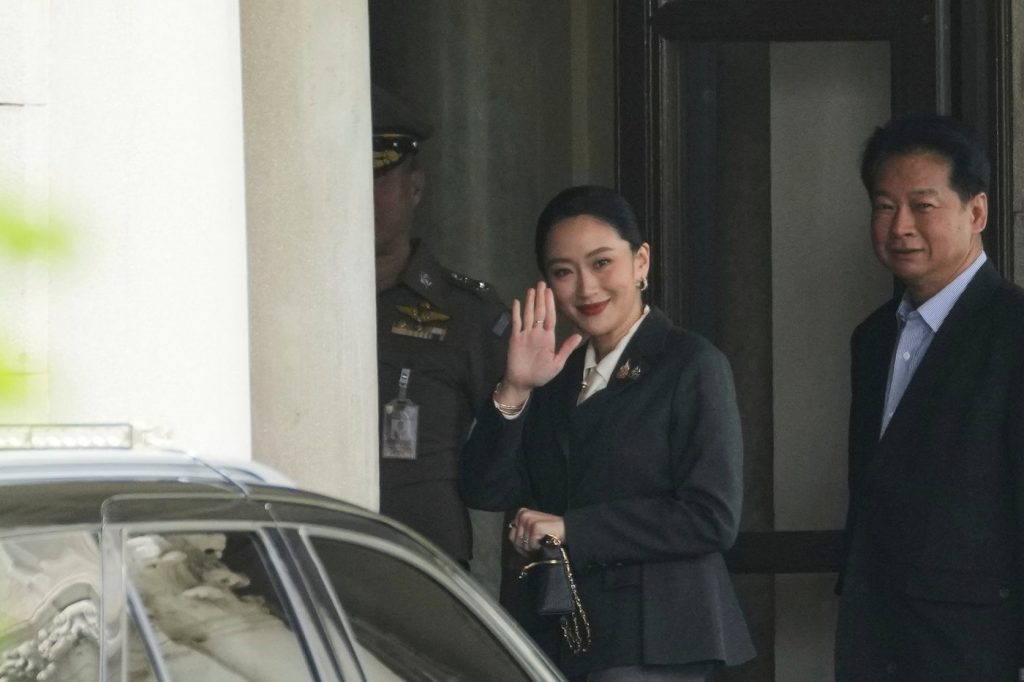BANGKOK (AP) – Thailand's Constitutional Court made a significant ruling on Friday, dismissing Paetongtarn Shinawatra from her position as prime minister. The court determined that she had violated constitutional ethics in a controversial phone call with Cambodia's Senate President, Hun Sen. This ruling means that Paetongtarn loses her role as the country's leader, a position she had held for approximately one year.
Since July 1, Paetongtarn had been suspended from her duties following the court's decision to consider the case against her. In her absence, Deputy Prime Minister Phumtham Wechayachai took over her responsibilities, ensuring continuity in governance during the judicial process.
The contentious phone call on June 15 between Paetongtarn and Hun Sen was intended to mitigate rising tensions over disputed territorial claims along the border between Thailand and Cambodia. However, the conversation sparked outrage within Thailand due to Paetongtarn's perceived overly amiable tone regarding a matter of national security, as well as her remarks that appeared to criticize a Thai army general.
Hun Sen, who served as Cambodia's prime minister for 38 years until his son, Hun Manet, succeeded him in 2023, leaked the audio of the call online. The timing was crucial, as relations between the two nations had deteriorated following the death of a Cambodian soldier in May, amid a brief confrontation in disputed territory. This conflict escalated in late June, resulting in five days of combat that left dozens dead and over 260,000 people displaced.
The court's decision presents challenges for the ruling coalition, which was led by Paetongtarn's Pheu Thai Party. The fallout from the phone call and the resulting scandal prompted the Bhumjaithai Party, the largest partner in the coalition, to withdraw its support. Consequently, this left the coalition with a precarious majority of seats in the House of Representatives, raising concerns about the stability of the government.
This ruling also represents a setback for Paetongtarn's father, former Prime Minister Thaksin Shinawatra, who was ousted by a military coup in 2006 but has remained a significant figure in Thai politics. Thaksin's influence largely stems from the populist policies he implemented during his time in office, as well as his substantial wealth generated from the telecommunications industry.
As the political landscape evolves in Thailand following this ruling, it remains uncertain how the Pheu Thai Party will navigate the loss of its leadership and support within the coalition. The implications of this decision will likely reverberate through the country’s political environment in the weeks and months to come.











